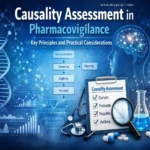This blog covers:
- SMQ – Concept, structure, and practical applications
- SOC vs SMQ – Key differences and when to use each
- Benefits and limitations of using SMQs in pharmacovigilance
Table of Contents
Introduction
Standardised MedDRA Queries (SMQs)
If you’ve used the MedDRA browser before, you might have come across SMQs — but many users aren’t fully aware of their purpose or how to use them effectively.
In this article, we’ll dive deeper into the concept of SMQs, explore their practical applications, and clarify how they differ from SOCs. Let’s get started.
SMQ: Definition
Standardised MedDRA Queries (SMQs) are predefined groupings of MedDRA terms—typically at the Preferred Term (PT) level—designed to capture information related to a specific medical condition or area of interest.
Purpose
SMQs are designed to help identify and retrieve potentially relevant individual case safety reports. The grouped terms can encompass signs, symptoms, diagnoses, syndromes, physical findings, laboratory results, and other physiological test data—providing a structured approach to pinpoint cases related to specific medical conditions or areas of concern.
“SMQs turn MedDRA’s vast terminology into targeted insights—making it easier to find the signal in the noise and focus on what truly matters in patient safety.”
Background
Before SMQs were introduced, MedDRA relied on Special Search Categories (SSCs) to serve a similar purpose. However, after years of use, stakeholders—including the biopharmaceutical industry, regulatory authorities, and medical communities—found that SSCs did not fully meet the requirements for efficient case retrieval and analysis.
To improve this, SSCs evolved into MedDRA Analytical Groupings (MAGs). Later, the Council for International Organizations of Medical Sciences (CIOMS) initiated an independent effort to develop more refined search groupings for MedDRA-coded data, known as Standardised Search Queries (SSQs).
In May 2003, through the combined work of the CIOMS Working Group and the MedDRA Maintenance and Support Services Organization (MSSO), these search groupings were officially established as Standardised MedDRA Queries (SMQs).
Design and Concept
- SMQs are developed by grouping MedDRA terms—often from one or more SOCs—related to a specific medical condition or area of interest.
- As of now, there are a total of 110 SMQs available.
- They may include a mix of highly specific and less specific terms to capture a broad range of relevant cases.
- Some SMQs are simple, straightforward collections of related terms.
- Others are more complex, combining terms from multiple groups to address multifaceted conditions.
- Each SMQ has a unique numerical code that begins with the digit “2”.
- They are intended to support efficient identification and retrieval of relevant Individual Case Safety Reports (ICSRs).
- SMQs can be hierarchically related, where one SMQ is a subset of another, and they operate at both the PT and LLT levels.
- Only LLTs linked to a PT included in the SMQ are represented; unrelated LLTs are excluded.
Data characteristics of SMQ
- MedDRA term inclusion
- Broad/narrow
- Algorithms
- Hierarchy
- SMQ status/term status within an SMQ
- Term versioning in an SMQ
How SMQ Hierarchy Differs from the MedDRA Hierarchical System
Some SMQs are developed as sets of related queries arranged in a hierarchical relationship, but this structure is not the same as MedDRA’s standard hierarchy.
- One or more subordinate SMQs can be combined under a broader SMQ.
- Within an SMQ, the terms are defined at the Preferred Term (PT) level, with subordinate SMQs containing related PTs and LLTs.
- Each SMQ and its subordinate components have a defined status—either active or inactive.
- Not the traditional hierarchy used for coding in MedDRA.
Scope Types:
- Narrow Scope – Focused on high specificity; retrieves cases highly likely to represent the condition of interest.
- Broad Scope – Focused on high sensitivity; retrieves all possible relevant cases.
- Broad Search – Includes both broad and narrow terms for comprehensive retrieval.
SMQ Term Status
- Active: Currently maintained and updated.
- Inactive: No longer maintained.
Each SMQ is assigned a status (Active or Inactive), similar to the concept of MedDRA currency.
Terms within an SMQ also have their own status flag.
Note: Once a term is included in an SMQ, it remains part of it permanently, although its status may change to Inactive.
Benefits and Limitations
Benefits
- Application across multiple therapeutic areas
- Validated reusable search logic
- Standardized communication of safety information
- Consistent data retrieval
- Maintenance by MSSO/JMO
Limitations
- Do not cover all medical topics or safety issues
- Will evolve and undergo further refinement even though they have been tested during development
Note: SMQs are primarily designed for organizations to run queries against MedDRA-coded data in their databases to identify “hits.” They are specifically structured from an IT perspective as predefined, stored queries for targeted retrieval.
Key takeaways
SMQs group related MedDRA terms—mainly at the Preferred Term (PT)
Purpose of indentify cases linked to specific medical conditions or areas of interest.
SMQs can be broad or narrow in scope—broad queries maximize sensitivity, while narrow queries focus on specificity.
Primarily used from an IT perspective, not used for do coding job
Struggling with accurate MedDRA coding? Let our expert team streamline your process
Ensure precise, compliant, and efficient coding for every case. Get support today!
Navigating MedDRA coding can be challenging and time-consuming, especially when handling large volumes of case data.
At Drugvigil, we provide expert MedDRA coding standalone support.
Conclusion
SMQs are more than just grouped MedDRA terms—they’re powerful, precision-built tools that transform raw safety data into actionable insights.
By bridging medical expertise with smart query design, they empower pharmacovigilance teams to detect, analyze, and respond to potential safety signals faster and more accurately.
In a field where every case counts, SMQs aren’t just a convenience—they’re a game-changer for patient safety.
If you found this content helpful and learned something new, share it with your friends and colleagues so they can benefit too.
We’d love to hear your thoughts—feel free to comment if you think we missed something or if you have additional insights to share. Thanks for reading!







Leave a Reply